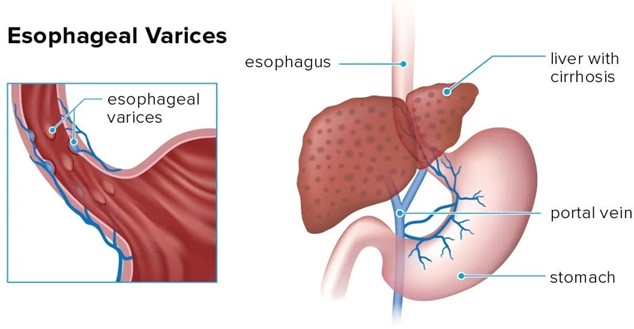A nurse is preparing to administer dabigatran to a client who has atrial fibrillation. The nurse should explain that the purpose of this medication is which of the following?
To slow the response of the ventricles to the fast atrial impulses
To dissolve clots in the bloodstream
To reduce the risk of stroke in clients who have atrial fibrillation
To convert atrial fibrillation to sinus rhythm
The Correct Answer is C
Choice A Reason: This is incorrect because dabigatran does not affect the electrical activity of the heart or the conduction system. It does not slow down the ventricular response to the atrial impulses.
Choice B Reason: This is incorrect because dabigatran does not dissolve existing clots in the bloodstream. It only prevents new clots from forming.
Choice C Reason: This is correct because dabigatran reduces the risk of stroke in clients who have atrial fibrillation by preventing clot formation and reducing blood viscosity. Dabigatran is an anticoagulant medication that prevents the formation of blood clots in the heart and blood vessels. Atrial fibrillation is a condition where the atria beat irregularly and rapidly, which can cause blood to pool and clot in the heart chambers. These clots can travel to the brain and cause a stroke. Dabigatran reduces the risk of stroke by preventing clot formation and reducing blood viscosity.
Choice D Reason: This is incorrect because dabigatran does not restore normal sinus rhythm in clients who have atrial fibrillation. It does not affect the heart rate or rhythm.
Nursing Test Bank
Naxlex Comprehensive Predictor Exams
Related Questions
Correct Answer is D
Explanation
Choice A Reason: This is incorrect because these values indicate respiratory alkalosis, which is caused by hyperventilation or excess loss of carbon dioxide (PaCO2). Respiratory alkalosis increases the blood pH and decreases the HCO3- level.
Choice B Reason: This is incorrect because these values indicate metabolic alkalosis, which is caused by excess intake or retention of bases or loss of acids. Metabolic alkalosis increases the blood pH and the HCO3- level.
Choice C Reason: This is incorrect because these values indicate respiratory acidosis, which is caused by hypoventilation or excess retention of carbon dioxide (PaCO2). Respiratory acidosis decreases the blood pH and increases the HCO3- level.
Choice D Reason: This is correct because these values indicate metabolic acidosis, which is a common complication of chronic kidney disease. These values indicate metabolic acidosis, which is a common complication of chronic kidney disease. Metabolic acidosis occurs when the kidneys are unable to excrete excess acids or retain enough bicarbonate (HCO3-), which is a base that buffers the blood pH. As a result, the blood pH decreases and becomes more acidic. The normal range for blood pH is 7.35 to 7.45, for HCO3- is 22 to 26 mEq/L, and for PaCO2 is 35 to 45 mm Hg.
Correct Answer is A
Explanation
Choice A: Provide frequent oral and nares care is the correct action for the nurse to take. Oral and nares care can help prevent infection, dryness, and irritation of the mucous membranes, which can be damaged by the pressure and friction of the tube. The nurse should also monitor the tube position, secure it with tape, and keep scissors at the bedside in case of emergency deflation.
Choice B: Keep the client in a supine position is not the correct action for the nurse to take. The supine position can increase the risk of aspiration, regurgitation, and gastric distension, which can worsen the bleeding and compromise the airway. The nurse should elevate the head of the bed to at least 30 degrees and use a semi-Fowler's or high-Fowler's position.
Choice C: Ambulating the client four times per day is not the correct action for the nurse to take. Ambulation can increase abdominal pressure and dislodge the tube, which can cause bleeding and perforation. The nurse should keep the client on bed rest and use passive range-of-motion exercises to prevent complications such as thromboembolism and muscle atrophy.
Choice D: Encouraging the client to consume clear liquids is not the correct action for the nurse to take. Clear liquids can increase gastric volume and acidity, which can aggravate the bleeding and interfere with hemostasis. The nurse should maintain a nothing-by-mouth status and provide intravenous fluids and nutrition as prescribed.

Whether you are a student looking to ace your exams or a practicing nurse seeking to enhance your expertise , our nursing education contents will empower you with the confidence and competence to make a difference in the lives of patients and become a respected leader in the healthcare field.
Visit Naxlex, invest in your future and unlock endless possibilities with our unparalleled nursing education contents today
Report Wrong Answer on the Current Question
Do you disagree with the answer? If yes, what is your expected answer? Explain.
Kindly be descriptive with the issue you are facing.
